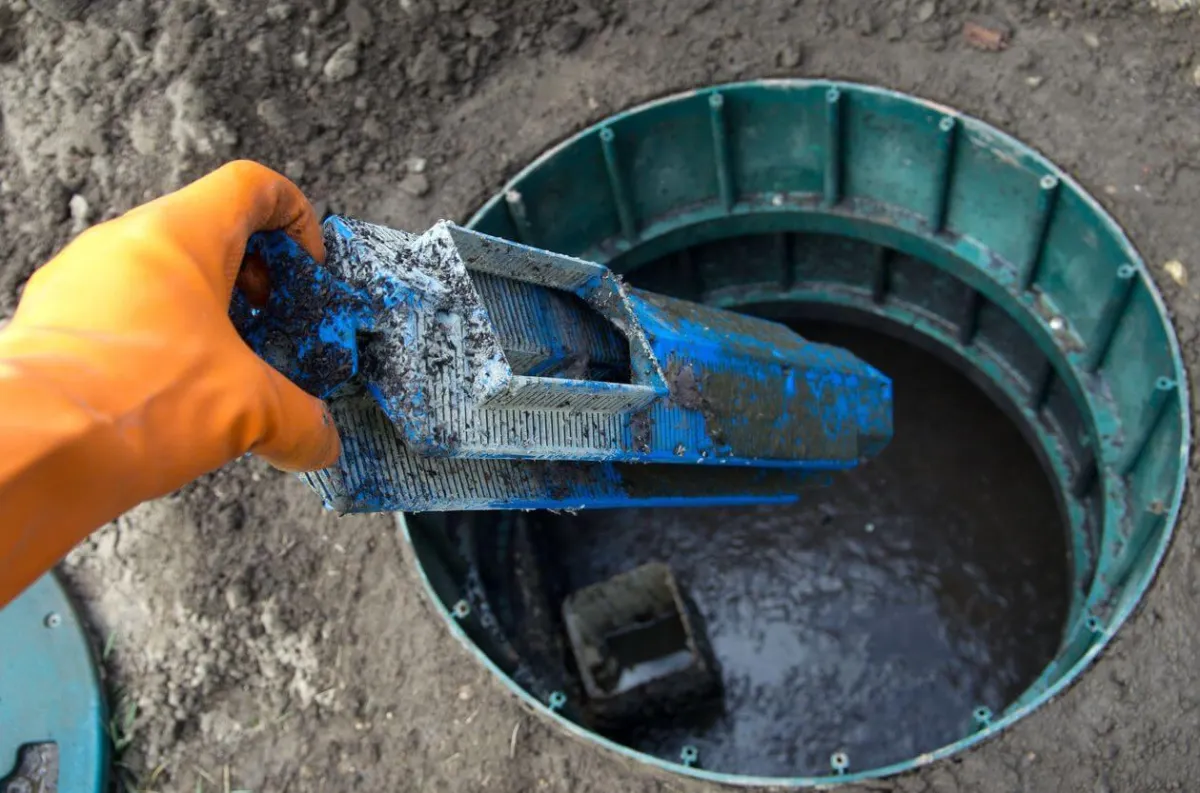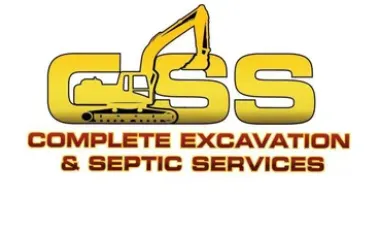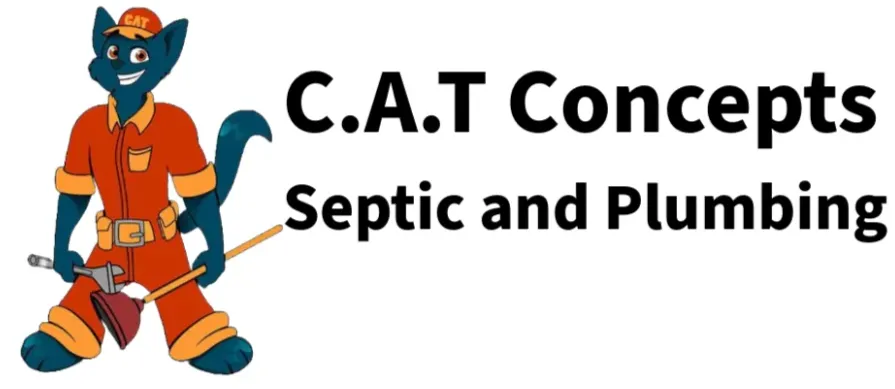
How to Choose the Right Septic Inspector Near Miami | Cat Concepts
1. Why Septic Inspections Matter (Especially in South Florida)
If you’re here, there’s a good chance you’re not totally sure what’s going on with your septic system. Maybe you’re buying a house, selling one, or just worried something smells off (literally or financially). Either way, you’re not alone. In Miami and across South Florida, septic issues are more common than people think, and they’re a lot easier to prevent than to fix after something goes wrong.
At Cat Concepts Septic and Plumbing, we work with homeowners all over Miami-Dade, Broward, and Monroe Counties who just want one thing: peace of mind. They want to know their septic system is working, safe, and not about to cause a nasty surprise under their lawn.
We get it. Nobody wakes up excited to book a septic inspection. But when it's done right, it can save you thousands, protect your property, and even help your home sell faster if you're planning a move.

2. The Real Problem: What Can Go Wrong Without One
Let’s be real. Septic systems aren’t flashy, but they do a critical job. And when they’re neglected, you’re looking at a domino effect of problems.
Here’s what can happen if you skip an inspection:
You buy a home with a cracked tank or failing drain field
Your system backs up and floods your yard or worse, your house
You pay twice what you should because you didn’t catch a small issue early
In South Florida, where we have high water tables and rainy seasons that can stress older systems, even a small problem can turn into a major one quickly.
3. Who Actually Needs a Septic Inspection in Miami?
Let’s clear up a myth. Septic inspections aren’t just for people buying homes, though that’s a huge reason. You should also get one if:
You're selling a home and want to avoid surprises during closing
You haven't had your system looked at in 3 to 5 years
You’re noticing slow drains, soggy spots in your yard, or strange smells
You’ve recently had heavy rains or flooding in your area
Basically, if your septic system hasn’t been on your radar lately, it’s time to check in.
4. What a Legit Septic Inspection Should Include
Not all inspections are created equal. A real, thorough septic inspection near Miami should include:
Checking the tank for cracks, leaks, and sludge levels
Testing the drain field to make sure it’s absorbing water properly
Locating the tank with the right tools
Using a septic camera to inspect the system from the inside
Looking at baffles, filters, and connections to the house
If your inspector shows up with nothing more than a shovel and a clipboard, you might want to keep looking.
5. Smart Homeowners Ask These 7 Questions Before Hiring
Hiring the wrong inspector can cost you big. Here are questions we recommend you ask before choosing anyone:
Are you licensed and insured to do septic inspections in Florida?
Do you use a septic camera or just visual inspection?
Can I be present during the inspection?
Will you give me a full written report afterward?
How long will the inspection take?
What’s included in your price and what’s extra?
How many septic systems have you inspected this year?
If someone can’t answer these clearly, or seems annoyed you’re even asking, it’s a red flag.
6. Septic Camera Inspections vs. Old-School Methods: Which One’s Better?
We get asked this a lot. Old-school inspections relied heavily on surface clues and guesswork. It was part science, part art, and part luck.
Today, camera inspections are a game-changer. We can snake a small, waterproof camera into your pipes and actually see what’s going on. Roots, cracks, clogs, collapsed lines, it’s all right there. You don’t have to wonder what’s lurking underground. You’ll see it for yourself.
Smart homeowners ask for a camera inspection. It’s worth it.
7. How Much Should a Septic Inspection Cost in Miami?
Let’s talk dollars and sense.
Most septic inspections in South Florida range from $250 to $500, depending on:
Whether your tank is easy to access
If pumping is needed during the inspection
Whether a camera is used
The size and complexity of your system
Be wary of ultra-low quotes. If someone says they’ll do it for $99, ask what you’re really getting. Often, those are basic inspections that don’t go deep enough to catch serious issues.
8. What Makes a Good Septic Inspector? (Hint: It’s Not Just the Tools)
Experience matters, but so does attitude.
We believe a good inspector should be:
Thorough – They don’t rush or skip steps
Clear – They explain what they’re doing and why
Honest – They tell you what’s urgent, what’s not, and what your options are
Respectful – Of your time, your property, and your budget
At Cat Concepts Septic and Plumbing, we’ve made a habit of treating people like neighbors because in most cases, they are.
9. Common Red Flags to Watch for When Getting Quotes
There are a few warning signs that should make you think twice:
They refuse to give you a written report
They won't explain their findings in simple terms
They push unnecessary repairs or replacements right away
They can't show proof of insurance
Their online reviews are vague or suspicious
You don’t need to be an expert to spot a scam. If it doesn’t feel right, trust your instincts.
10. How Often Should You Get Your Septic System Inspected in South Florida?
Short answer: every three years at the very least.
But there are exceptions. If your system is older or if you’ve had issues in the past, every one to two years is safer.
Rainfall, usage, soil conditions, and age all matter. South Florida’s climate puts more pressure on systems than most people realize. A quick check every few years can keep things running smoothly and save you from massive emergency repairs later.
11. Why Timing Is Everything (And the Best Season to Schedule One)
Here’s a tip most homeowners miss.
Schedule your inspection during dry season, usually between November and April. The ground is drier, which makes it easier to access your tank and check for drain field issues. Heavy rain can mask real problems or flood your system temporarily, which makes it harder to get an accurate read.
And if you're buying a home, don't wait until the final walkthrough. Get it booked early in your inspection period so you have time to make decisions.
12. Our Promise to You at Cat Concepts Septic and Plumbing
We’re not the biggest septic company in Miami, and we’re not trying to be. What matters to us is getting it right for the people we serve.
We’ve built our reputation on being honest, showing up on time, and giving our clients all the information they need. No pressure. No upsells. Just real help from people who care.
Whether we’re working in Homestead, Coral Gables, or Key Largo, we walk the property with you, explain what we find, and help you decide what comes next. We believe in doing it the right way the first time, every time.
13. Final Thoughts: Do It Now, Not When It’s Too Late
Septic inspections aren’t glamorous, but they’re necessary. Especially here in Miami-Dade, Broward, and Monroe counties, where everything from storms to sandy soil can affect your system.
Smart homeowners don’t wait until there’s a puddle in the yard or an offer on the table. They check in before the problems start.
And when you’re ready, we’re here to help.
Hours: Open 24 Hours
Extended hours by appointment only.
Address: 560 Nw 52nd Street Miami, FL 33127

Hours:
Mon - Fri 9:00 am - 5:00 pm
Extended hours by appointment only.



